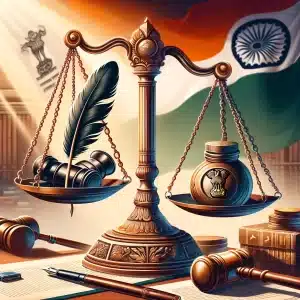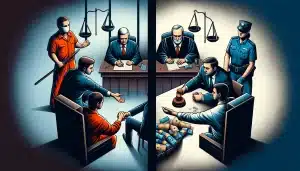Simplifying Your Life & Law | Legal Drafting services

For the past few weeks, Indian news channels have been keen on collecting resources and tracking the case that was filed by Mumbai police on Raj Kundra, who is a businessman and the husband of actress Shilpa Shetty. This article will look into the legal aspects involved in the case which includes the facts, charges booked on Raj Kundra, and the maximum punishment.
Reported Facts:
It was on 19th July, Raj Kundra was arrested by the property cell of Mumbai Crime Branch police and was alleged to have a connection with the pornography issue that came up in early February 2021. As per Mumbai Police, the investigation that was conducted by them in a bungalow at Mudh village on February 4th, 2021, showed that Raj Kundra was involved in taking nude and vulgar videos and has been reported to have uploaded them on the social media platform for monetary benefits. He was alleged for involving in publishing those videos on different mobile apps as well and a witness, as per the reports, has informed the Mumbai police regarding Raj Kundra’s connection with his close aide named Saurabh Kushwah and the establishment of Arms Prime Media Private Limited for commercial use of apps and videos. On the 23rd of July, 2021 Mumbai’s Magistrate court ordered police custody for Raj Kundra.
Charges on Raj Kundra:
Under the Indian Penal Code, 1860 Raj Kundra was charged with the offenses under sections 354C which deals with voyeurism, section 292 which deals with the sale of obscene books, etc, section 293 for selling obscene objects to young persons, and section 420 for cheating and dishonesty. Apart from IPC sections, he was also charged under sections 67 and 67A of the Information Technology Act and related provisions under the Prohibition of Indecent Representation of Women act.
Charges and Punishments under IPC, 1860:
- Section 345C of Indian Penal Code:
This section states that if any person captures a private act of a woman where she is not expected to be watched or captured and if the person publishes or shares the same, then the person shall be punished with a minimum of 1 year which may extend to 3 years. 2013 Amendment brought minimum punishment for voyeurism not less than one year. But, the same punishment shall be extended up to seven years in case of repeated convictions.
- Section 292 of IPC:
It deals with the sale of obscene books and states that any kind of sale of books, pamphlets, paper, writing, drawing, painting, or any other object, shall be deemed to be obscene as defined under IPC and if has lascivious or appeals to the interest or if the effect of its contents as a whole tends to deprave and corrupts any person, who is targeted to read, see and hear the matter contained or embodied in it. Raj Kundra was charged under this section for his selling of obscene books through different media platforms which would deceive or deprave or corrupt a person. If any person is so charged under section 292, he/she shall be punished with imprisonment which may extend to 2 years and a fine up to 2000 rupees.
- Section 293 of IPC:
The purpose of enacting this particular provision is to specifically penalize the accused for the sale of obscene objects to any person below the age of 20 years. It is regarded as an astringent provision and to make such penalization hard for selling obscene objects to persons below that age, this provision was enacted. In case of trial under section 293 as well as section 292, the mere certificate that was granted by the Censor Board under section 6 of the Cinematograph act will not act as an effective defense for the accused, whereas the facts of the case will be taken much to establish the offense. Raj Kundra has the burden of proof under section 293 to prove that his company has not sold obscene objects to persons below the age of 20 and can never defend himself with a mere censor board certificate.
- Section 420 of IPC
As per section 420, if a person is charged for cheating and dishonestly inducing the delivery of property, the punishment would be imprisonment which may extend to seven years, and shall also be liable to fine. But, with respect to Raj Kundra’s case, if the company is charged under section 420 which is an aggravated form of cheating and dishonesty, then the same cannot be prosecuted unlike a normal person, but then it can be penalized as there is a mandatory sentence of imprisonment.
Charges under Information technology act. 2008
Section 67 states that any person who publishes or transmits any obscene content, which has been defined under section 292 of IPC, 1860, in an electronic form, and then he/she shall be punished with imprisonment up to 3 years and a fine up to 5 lakh rupees. The vulgar videos that were captured and published were transmitted through mobile applications by Raj Kundra’s company. The obscenity that this section defines, takes its source from section 292 of IPC.
Section 67A of the act gives punishment for the offense that is committed under Section 67 of the act. It states that whoever commits the offense mentioned under section 67 of IT act, 2008 in any form, shall be punished with the imprisonment of 5 years and with the fine which may extend to 10 lakh rupees. If any person is convicted for repeated offense then he/she shall be punished with imprisonment which may extend up to 7 years and a fine of 10 lakh rupees.
Similarly, the Indecent Representation of Women (Prohibition) Act penalizes any person who is involved in the indecent representation of women in any form.
Conclusion:
The latest reports on August 1st, 2021 state that the Bombay High court took note of the evidence which consists of 51 pornographic films, and the same were deleted by the accused Raj Kundra and Ryan. Counsel appearing for the prosecution informed this act as part of destroying evidence.
You may also like to read:
-
09 Aug 2021 Know Your LawLaw of Forgery under Indian Penal Code
-
14 Jul 2021 Know Your LawDifferences between plea bargaining and compounding of offenses
-
08 Sep 2021 Know Your LawGrounds to defend on the cases of 498A
-
11 Aug 2021 Know Your LawRight of Private Defence
-
23 Aug 2021 Know Your LawAdultery
-
10 Jul 2021 Know Your LawCulpable Homicide and Murder
-
29 Aug 2021 Know Your LawLaws about the Publication of Obscene Content




